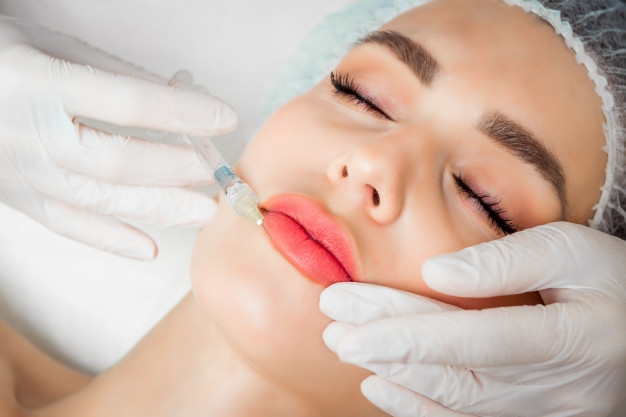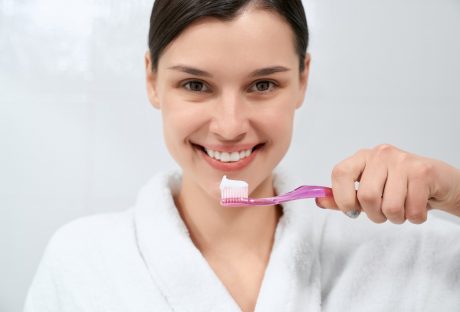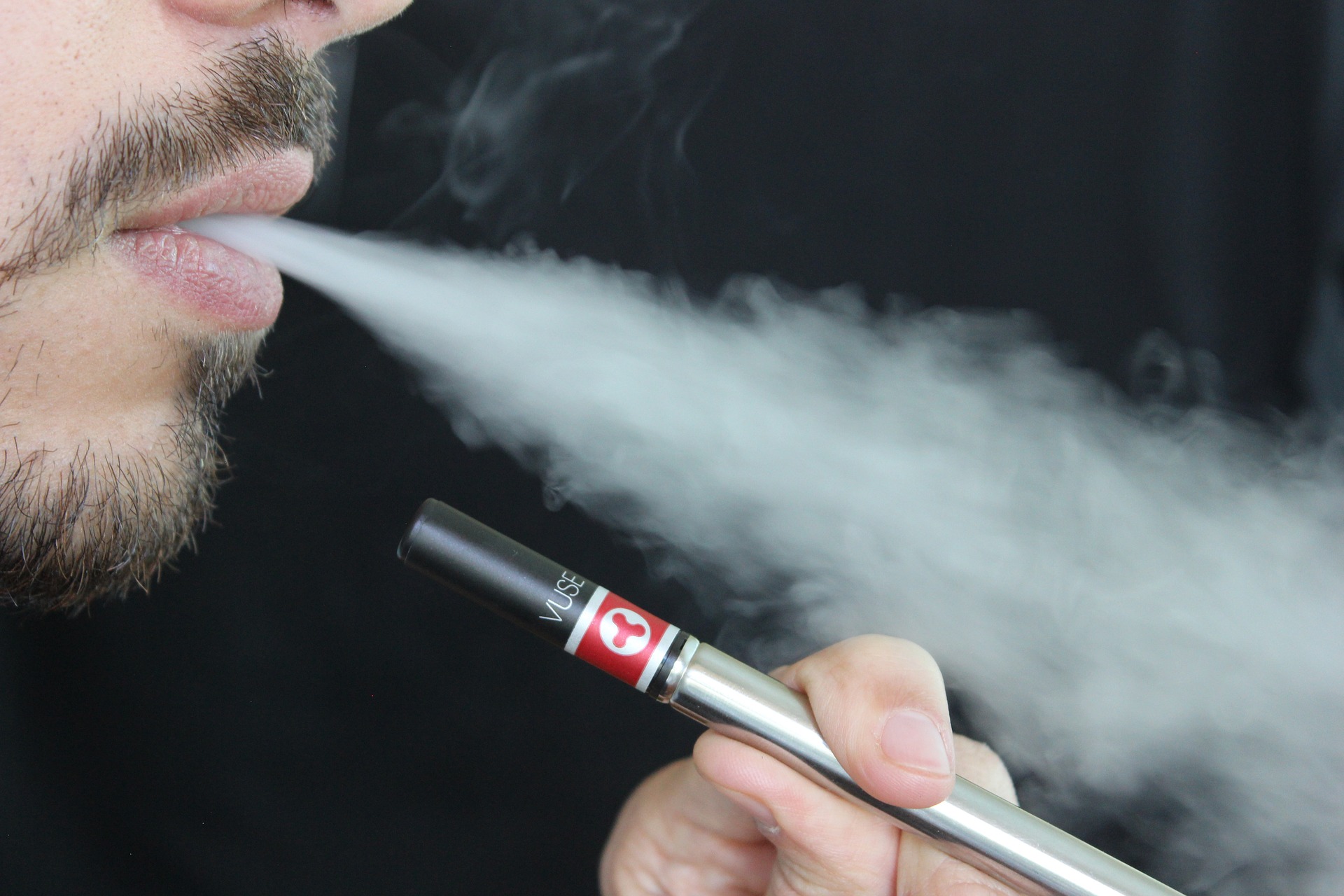A study by the American Society of Plastic Surgeons estimates that a cosmetic lip injection is performed once every twenty minutes. That’s once every episode of New Girl, not including the credits or title sequence! To learn basic details about lip fillers, read on to the end of the article.
What Are Lip Fillers?
With the help of lip fillers, you can increase the volume of your lips. These come in the form of injections with dermal fillers. Actually, they consist of synthetic hyaluronic acid (HA). This is actually a natural substance inside the human body. Some common lip filler brands are Restylane, Juvederm, and Perlane.
Benefits Of Lip Fillers
The following are some of the major benefits of lip fillers:
- Lip fillers add volume to your lips, which goes away as you age.
- The symmetry between your upper and lower lips gets better.
- The wrinkles and fine lines around your mouth will go away. Also, lip fillers will give a youthful appearance to your lips. As a result, it improves your self-image and confidence.
- You will get natural-looking results without the need for surgery. However, the results are temporary. Hence, you can try out different shapes and volumes without committing permanently.
- One of the best things about lip fillers is that you can resume your normal activities immediately after the treatment. In fact, you do not need recovery time for it.
- However, if the results after treatment do not satisfy you, you can dissolve it with an enzyme that dissolves HA-based fillers.
Top 7 Things You Must Know About Lip Fillers
Lip fillers are, of course, super common. They’re also super precise, low-key, and effective.
Maybe you’re thinking of sliding under the needle yourself, or maybe you’re just trying to tear yourself away from your ninth consecutive ‘side of KUWTK.
Either way, there are some things you should know about lip fillers. Here are 7 of them.
1. Prep For Lip Fillers Matters:
Maybe this seems like a no-brainer–but if you’re looking to have an awesome experience with lip fillers and enhancement, it’s worth noting.
Although lip injections have become a really common procedure (thanks, Kylie!), it’s still not a one-size-fits-all sort of deal. It’s essential that you consult carefully with your doctor to ensure you’re clear on your personal lips’ limitations and potentials.
On your end of the deal, it’s important to consider your own expectations and desired outcomes. Although lip injections have become pretty low-key, it’s still necessary to decide for yourself the sort of impact you want your new lips to have on you and your face.
For additional preparation, specialists suggest abstaining from painkillers like aspirin, Motrin, and Aleve, as well as fish oil, multivitamins, and vitamin E. Each of these acts as a blood thinner and can serve to make recovery more…bruises.
2. Different Fillers Do Different Things:
You can expect to pay anywhere from $400 to $1000 for your fillers. The actual numbers depend on a few different things, including specific location and practice. Price can also depend on the particular type of injections you choose.
People typically choose between Collagen or Hyaluronic Acid (HA) bases as their filler material. Collagen works simply by plumping the lip through its presence. HA, on the other hand, plumps the lip directly while also trapping water within the lip.
There are several different brands and forms of HA that can have various effects. For example, a filler such as Juvederm (s/o to Kylie!) will usually result in a really soft, youthful–let’s just say it–Kylie Jenner-esque pout.
Other fillers, like Restylane or Volbella, utilize smaller particles to achieve a subtler plump.
It’s important to talk with your surgeon and decide together which of the potential fillers will work best for your lips, goals, and budget.
3. Lip Shapes Depend On Your Face:
You can bring as many close-ups of Kylie’s bottom lip to your surgeon as you want–but nothing can really guarantee the precise way your lips will look after the fact.
Sure, the specific type of injection you go with can have some impact on the outcome of your lips’ shape, but it all comes down to your face’s natural set-up and allowances.
Lip injections typically work better on people with naturally fuller lips (lame, we know), and the way your lips look once they’re healed really does have a lot to do with how your face moves with your injection.
The downside is that it’s nearly impossible to “copy” someone’s lips. But the plus side of this fact is that your lips will probably come out looking more natural and fitted to your face. They’re still your lips, just…fuller.
4. You Can Handle The Pain:
Maybe you, like a lot of people, aren’t super keen on needles. Or pain. Or needles.
Surprise! There’s no magical way to administer lip injections without injecting the lip (although we wish there were). If you want fuller lips, the fact is, you’ll need to undergo the needle.
The cool thing about lip injections, though, is that your lips are put under–a numbing cream, that is. The salve is applied generously to the lower parts of the face surrounding the mouth, then let sit for 20 to 30 minutes while the numbing agent activates.
This means that by the time the needles come stabbing at your face, any pain you feel will be more of a dull discomfort that most people find more than bearable; you can tell by the way they come back time and again for top-ups.
5. Recovery Is Low-Key:
The major difference you’ll notice immediately following your injections is some slight swelling and soreness. Some experience slight bruising.
As your appointment wraps up, your surgeon will place an ice pack against your lips. He’ll encourage you to use ice if you experience any soreness after, but that’s about it. The initial swelling and soreness should go away after a day or two.
You’ll be healthy, free, and looking fine to go about your days as normal. Also, you can go to work, have a drink, whatever.
The only real thing to avoid in a day or two following your injections is drinking from straws and sipping on, especially hot liquids, although even these are mostly related to the lingering numbness.
6. Injections Won’t Last Forever:
Depending on your personality and the type of injection you take, the exact length of time fillers can vary a bit.
Some fillers will stick around for only 4 to 5 months, while others have been seen to last for nearly a year. On average, people find their way back to their surgeon’s office for top-ups every 6 months.
Everyone’s body metabolizes materials differently, and there’s no real way to predict this at the outset, but talking with your surgeon on the topic is the only good way to decide what’s best for your face.
7. Don’t Love Your Fillers? Ditch ’em.
In the Leslie Ash days of lip injections, fillers were a seriously permanent thing. The good news for the rest of us (sorry, Leslie, you’re too far gone) is that if you decide after the fact that you’re not into your lip fillers, you can have them dissolved!
While Collagen fillers aren’t so easily taken out, HA-based fillers can vanish at the tiny flick of a needle.
If you decide to get rid of your fillers, your lips will be re-injected with an enzyme designed to safely and quickly break down the filler material. You’ll be back to your old face in no time.
It’s important, first, to give your lips that day or two to heal, as the swelling and slight bruising that can occur might be affecting the way your lips actually look.
Either way, it’s always good to know that, if you want, you can take this decision back.
Risks Of Using Lip Fillers
The following are a few risks of using lip fillers that you must be aware of:
- Since lip fillers come in the form of injections, you can face injection site issues like redness, bleeding, pain, swelling, etc.
- Apart from that, certain allergic reactions to lip fillers are also common.
- In case the treatment specialist mistakenly injects lip fillers into an artery, the tissue will die as a result. This is also known as vascular compromise.
- You can end up with lips of different sizes and a lack of proportion.
- In some cases, lip fillers can move to other areas of the face and can create a swell.
- If you have herpes simplex virus, you can trigger an outbreak if you use lip fillers.
- You can even end up with a fever after a lip filler injection.
Need Lip Fillers, Like, Now!?
Be sure to take your time in choosing the right surgeon and practice for the job.
You want someone who makes you feel comfortable and certain they’ll do the thing right–after all, you’re getting lip fillers to help you feel awesome about yourself!
If you’re not quite ready to set up a consultation, that’s no big deal. Stick around and check out more fun beauty content from us!
Read Also :






















